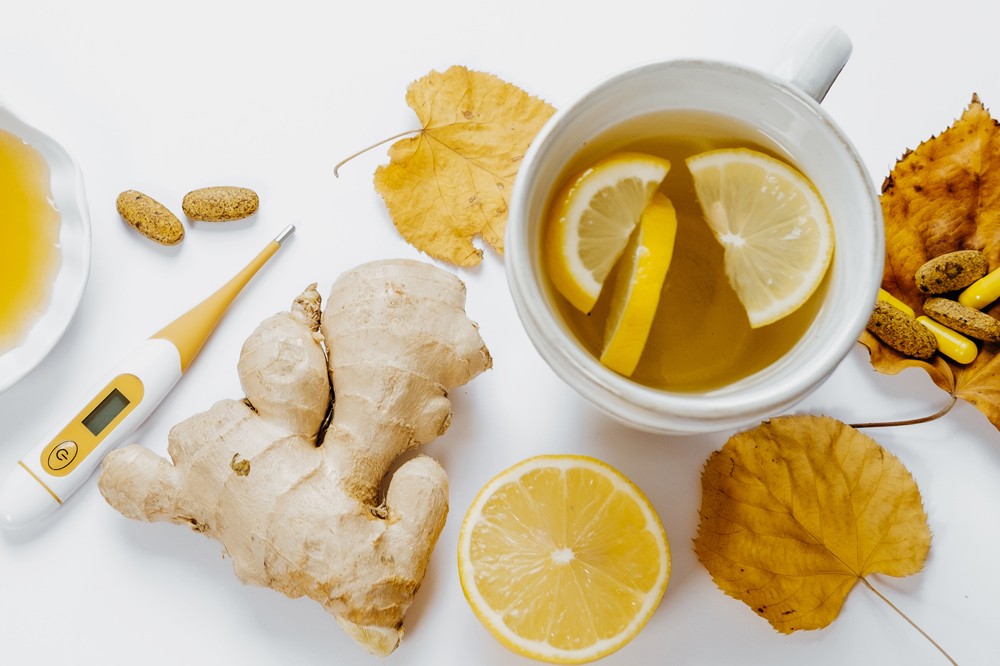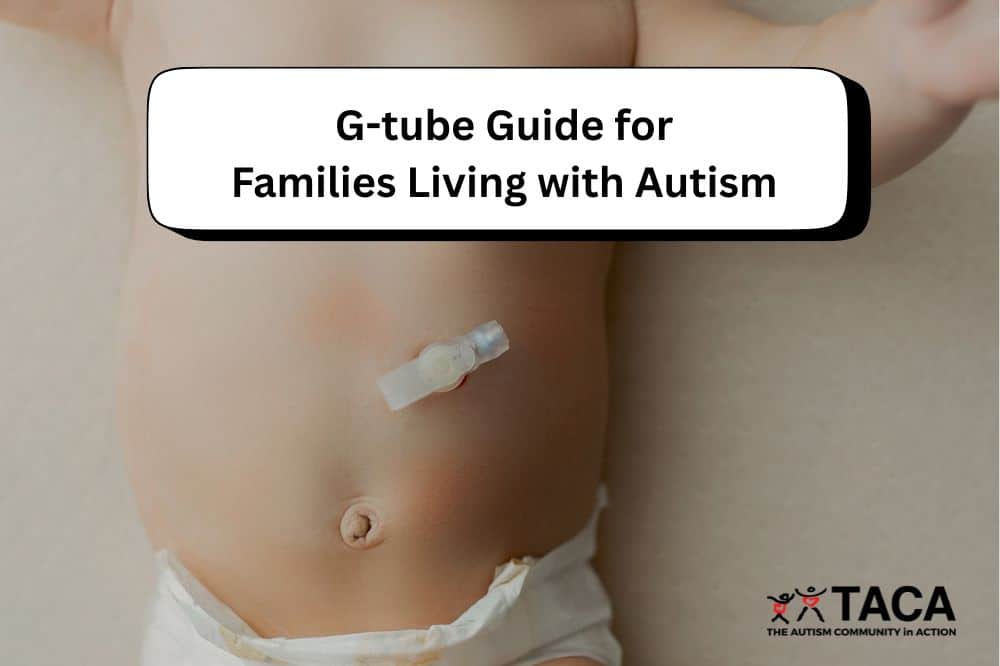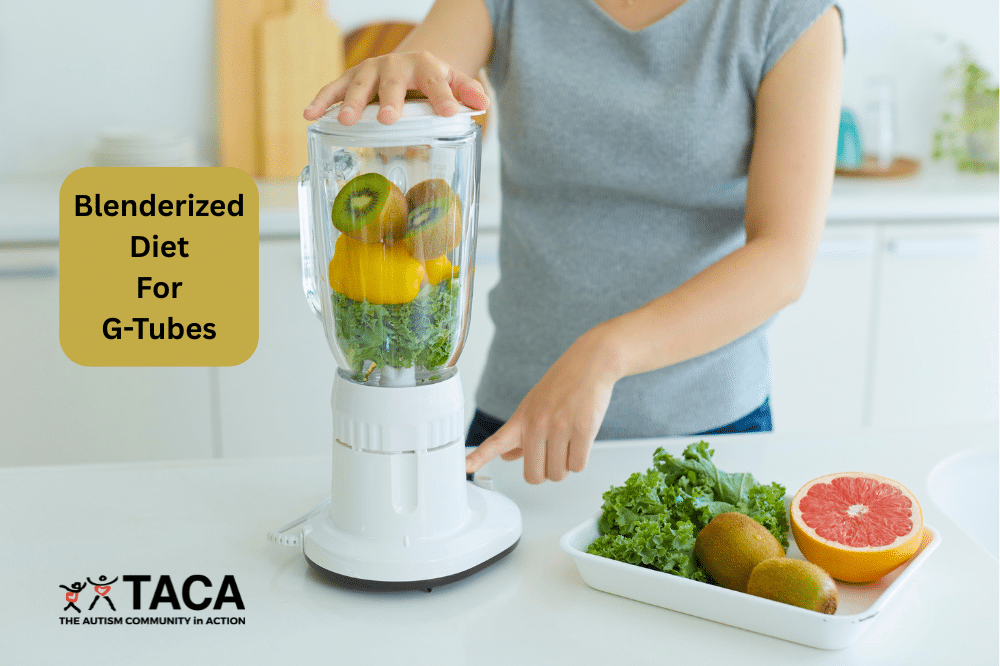Sickness: Prevention and Treatment Options

All contents of this resource were created for informational purposes only and are not intended to be a substitute for professional advice, diagnosis, or treatment. Always seek the advice of your physician, therapist, or other qualified health providers with any questions or concerns you may have.
Fall and winter bring colds, coughs, flu and gastrointestinal bugs. All undesirable illnesses that we diligently try to escape. Considering our kids with autism may not be able to communicate their pain to us, or their symptoms may linger longer, we want to do our best to keep our kids healthy. In this article, we will discuss sickness prevention and possible treatment options.
Sickness Prevention
- Hand Washing with Warm Water and Soap
- Have kids wash hands thoroughly when they return from being out of the house. A social story and visual schedule can help kids get into this habit. If possible, teach kids to not touch their face and sneeze into their elbow instead of their hands. This can help stop the spread of germs.
- Good Sleep Habits
- If your child has trouble sleeping, please read Sleep Issues and Autism. It has lots of great information and tips on how to help your child get more Zzz’s.
- This website shows how much sleep your child should be getting each night.
- Optimal Levels of Vitamin D
- Despite the ranges on the lab report, most functional medicine doctors want the level to be between 50-80. Getting daily sunshine exposure can also be helpful but is often not sufficient to get Vitamin D levels optimal. Vitamin D3 is a better form than D2.
- Low Sugar Diet
- Sugar is the top inflammatory food. In order to avoid illness, it is important to keep inflammation down. This helps the immune system to function optimally. Remember that simple carbohydrates convert to sugar when you eat them and the gut controls approximately 70% of the immune system. Using Stevia as a substitute for sugar may be helpful.
- Zinc
- Zinc is wonderful for preventing colds and flu. In addition, researchers have found a link between zinc deficiency and autism. Considering zinc is needed by the immune system to fight infection and many kids with autism show deficient in zinc, a zinc supplement might be very helpful. Keep in mind that zinc can upset the stomach, so taking with food is ideal.
- Vitamin C
- Taking Vitamin C at the first sign of illness is a great way to prevent a cold or flu from developing. Many people take it daily during the fall and winter months.
- Improve Your Indoor Air Quality
- Open windows and air out your home for about 30 minutes per day.
A Warning About Using Elderberry as a Preventative Measure
Elderberry works by activating the immune system. It increases both anti-inflammatory and inflammatory cytokines. This is not beneficial in the long term. Some of the major cytokines associated with the dangerous cytokine storm (IL-6, IL-10, TNF) are increased by the use of elderberry. Since inflammatory cytokines have been noted as a biomarker for autism, we do not want to increase inflammatory cytokines. Calming down the immune system is ideal.
Treatment Options for When Your Child is Sick
Please remember that some illnesses require medical attention, especially when the child is lethargic, dehydrated or is having trouble breathing. When in doubt, always consult a medical practitioner. The following information is not intended to be medical advice, but to assist you in helping your child feel more comfortable during illness.
Fever
Fever is the body’s way of burning off illness. It is a natural response and suppressing fever will prolong an illness. This article from Loyola Medicine talks about the benefits of fever. No one wants a child to be uncomfortable. The idea is to treat the child, not the fever. Use your best judgment as to when to medicate. See warnings below about using Tylenol. Calcium lactate may help a fever. During a fever, the body tries to remove ionized calcium from the bones to mobilize white blood cells to fight infection. Calcium lactate is the best form for this. Standard Process Calcium Lactate is a good product. Other forms of calcium like citrate or carbonate are not as effective. Milk would not be effective for this purpose either. You can find more about using calcium for fever here.
Flu
Flu is a contagious respiratory illness caused by influenza viruses that infect the nose, throat, and sometimes the lungs. If your child has symptoms of flu (including fever, headache, severe fatigue, joint pain and body aches, cough and nausea), monitor them carefully. Make sure to get help if your child shows signs of medical distress. Possible interventions for flu include:
- Fluids
- It is very important to stay hydrated. Push fluids and electrolytes to prevent dehydration. One of our favorite electrolyte supplements is here. You can just mix it into water. Homemade chicken soup is also a good way to stay hydrated.
- Flu Goot
- This is a homemade topical mixture made from coconut oil, olive oil and lots of garlic. It is great for kids who won’t take anything orally.
- Anti-Inflammatories
- Ibuprofen, Curcumin, Boswellia, and Holy Basil are all great for inflammation.
- Sleep
- This is the time for the body to repair and recover.
- Homeopathy
- There are some great homeopathic remedies for flu. However, when using homeopathic remedies, the symptoms must match the remedy very closely because homeopathy is very specific.
- Oscillococcinum is a homeopathic remedy that is readily available (you can find it at Walgreens and Target) but it must be correctly indicated by the symptoms.
Cough and Cold
The common cold is a viral infection of your nose and throat. Try using these tricks to help your cold and cough:
- Fluids
- Stay hydrated!
- Pineapple Juice
- Pineapple juice contains bromelain which is a strong anti-inflammatory. It can help with cough.
- Herbal Tea with Honey
- Here is a list of helpful teas to drink when you have a cold and cough.
- Gargling
- Your grandmother was right! Gargling is beneficial to the vagus nerve and gargling with warm salt water can reduce swelling in throat and loosen mucus. Gargling with probiotics works too.
- Chestal Honey Syrup
- This is a homeopathic product for coughing and chest congestion.
- Local Honey
- This study shows that honey is as effective as a cough suppressant.
- Apple Cider Vinegar
- There is anecdotal evidence that suggests Apple Cider Vinegar (ACV) can help with sore throats. More information on AVC can be found here.
- Nasal Saline Rinse
- Using a neti pot can be difficult for a child but a nasal spray to irrigate the nasal passages and sinuses can be helpful. X-Clear makes a nasal spray with added xylitol that can be beneficial.
- Homeopathy
- Because homeopathic remedies are very specific to the individual, use this website can help you find the right remedy to match symptoms and mood for cold and coughs. There are also combination homeopathic products like Cold Calm by Boiron.
Ear Infections
An ear infection is caused by a bacterium or virus in the middle ear. DO NOT put anything in the ear canal once the ear drum has ruptured unless under the direction of a physician.
This study, published in 2018, shows that kids under age 2, that have had ear infections are at increased risk for developing autism.
This study says that “Children with ASD were found to have significantly more ear infections than the typically developing children as well as to use significantly more antibiotics.”
Seek medical care if your child has had recurrent earaches, if your child has any other chronic or serious ailment, if the earache is severe, if the earache or mild hearing loss has lasted longer than one or two weeks, or if there is any sudden, significant decrease in hearing. Use your best judgement as to when it is time to see a doctor.
Possible treatments for ear infections include:
- Dairy Free Diet
- This is the top intervention for getting rid of chronic ear infections. We have seen many kids who are not responding to antibiotics, start a dairy free diet and the ear infection is gone within days.
- For more information on how to eliminate dairy from your child’s diet, please read Going GFCFSF in 10 Weeks!
- Garlic Mullein Ear Drops
- There are store bought brands and you can even make your own. Warning – Do NOT put anything in your child’s ear if they have a perforated eardrum.
- Chiropractic Adjustments
- Often a chiropractor can adjust the child so that the fluid can drain and pressure is released. Look for a chiropractor that has experience with children.
- Open the Ear Canal to Relieve Pain
- Open the ear canal with a gentle pull on the outer ear to relieve pressure. Pull the ear up and away.
- Lymph Massage
- Often the pressure built up can be very painful. If you know how to massage to release the pressure, it can be very helpful. Here are a few short videos to show you how to do it:
- Self Lymph Drainage Massage
- Lymph Drainage for the Ears
- Reduce Inflammation
- Often the Eustachian tube is so inflamed that it cannot drain.
- Remove inflammatory foods like sugar (and dairy as stated above).
- Ibuprofen, Curcumin, Boswellia, and Holy Basil are all great for inflammation.
- Rice or Salt Filled warm Sock on the Ear
- Many parents swear by this method of reducing pain. This link explains more.
- Homeopathy
- Using a classical homeopath that can help you find the right remedy is advised. This can work quickly and easily and help balance the immune system. In addition, there are homeopathic ear drop products found at health food stores that contain the most commonly used remedies for ear infections.
Viral Gastroenteritis
Viral Gastroenteritis, commonly referred to as the stomach flu, attacks the intestines causing nausea, vomiting, and diarrhea. It is extremely important to watch your child for dehydration. Your child may need IV fluids at the ER if they are dehydrated. Do not wait to get help if it is needed. Smaller children get dehydrated faster.
Here are some possible treatment options for gastroenteritis:
- Enzyme Defense
- Enzyme Defense by Enzymedica are enzyme capsules to be swallowed and will help if the vomiting has not set in yet. It helps greatly with nausea and prevention of vomiting.
- Activated Charcoal
- Activated charcoal works like a sponge. It expands and soaks up everything in the GI tract, including viruses. However, once vomiting starts, this may not be the treatment of choice because activated charcoal, which is black, can be vomited back up.
- Probiotics
- Crowding out the virus or gut bacteria with high dose probiotics may help with recovery from gastroenteritis.
- Apple Cider Vinegar
- Apple cider vinegar has antimicrobial properties that can kill e-coli bacteria. More information on how AVC helps is here.
- Peppermint Tea
- Peppermint is well known for its anti-nausea effects.
- Ginger
- Ginger is known for its positive effects on digestion. Grate fresh ginger into warm water and add honey.
- Coconut Water
- Replenish lost fluids with electrolytes such as coconut water.
- Don’t Let Child Drink Too Much at Once
- If the child cannot keep anything down, give clear liquids (water or electrolyte formula) in small amounts every 15 minutes. If your child vomits, wait about an hour and start over with a smaller amount of fluid (about 2 teaspoons) and continue as above. After no vomiting for about 6-8 hours, introduce solid foods slowly.
- Homeopathy
- Homeopathy is the theory of like treats like. If you can find the correct remedy, it can help stop vomiting. Here is a website that gives some of the popular remedies for indigestion, nausea, vomiting and upset stomach.
Cautions about Common Treatment Options for Sicknesses
Note About Antibiotics
Antibiotics do NOT treat viruses. Antibiotics treat bacterial infection. While there is a time and a place for using antibiotics, overuse of them is leading to antibiotic resistance world-wide, so prevention of acute illness and alternative methods of treatment are becoming more and more important.
A Warning About Acetaminophen (Tylenol) for Pain or Fever
If you decide to use a fever reducer when your child is sick, ibuprofen is a better choice than acetaminophen (Tylenol) for most. This is because, Tylenol reduces the amount of glutathione in the body. Glutathione is the body’s largest antioxidant.
This study shows that kids under age 2, who had exposure to Tylenol, among other factors, are at an increased risk for developing autism.
Dr. William Parker, an associate professor of surgery at Duke University’s School of Medicine, contends that in the case of autism, the specific trigger that leads to brain inflammation may be exposure to acetaminophen. See this study of which he is one of nine authors.
A 2019 study out of John Hopkins University funded by the NIH discovered that the use of acetaminophen (Tylenol) during pregnancy increases the risk of ADHD and autism in children.
- In this study, researchers collected cord blood from 996 births and measured the level of acetaminophen and two of its by-products. By the time the babies had grown to be 8-9 years old, the children with the highest levels of acetaminophen at birth had:
- 2.86 times the risk for ADHD
- 3.62 times the risk for Autism
Lastly, studies suggest an association between Tylenol (acetaminophen) use in children and development of asthma later in childhood.
Final Thoughts
Don’t let illness get you down this year. Take care of yourself and your family so there is more time to enjoy each other. If these sickness prevention and treatment options are not working, please be sure to visit your doctor’s office. Here’s to a healthy year!




